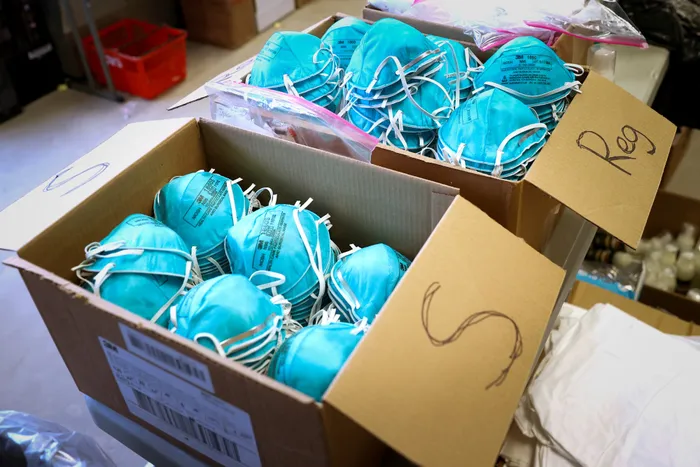20 consent agreements due to excessive Covid-19 hygiene pricing complaints

File picture: Reuters File picture: Reuters
Cape Town – The Competition Tribunal has confirmed two more consent agreements relating to Covid-19 excessive pricing complaints, bringing the total number of agreements since April to 20.
All of the agreements relate to the alleged excessive pricing of goods, including sanitisers and face masks, in the context of the Covid-19 pandemic.
The Competition Commission concluded consent agreements with the companies after receiving and investigating complaints from the public.
In April, the commission said it received information regarding alleged excessive prices charged by Vasilis Cleaning Supplies based in Bloemfontein for different types of surgical gloves, surgical masks and dust masks.
Vasilis does not manufacture its own products but sources these locally and internationally to sell to customers.
The commission concluded that Vasilis’s conduct of significantly escalating margins on surgical gloves and face masks, without any corresponding increases in costs between February and April, is a contravention of section 8(1)(a) of the Competition Act read together with Regulation 4 of the Consumer Protection Regulations.
“Vasilis does not admit that its conduct constitutes a contravention of the Competition Act. However, in terms of the consent agreement which has been confirmed as an order of the Tribunal, the company agrees to donate essential goods amounting to R243148 to charities - Mangaung Society for Care of the Aged, Boiketlong Old Age Home and the Hearts2Hand Foundation,” the tribunal said in a statement.
"The company has also agreed to donate R44 128.51 to the Solidarity Fund, and develop and implement a competition law compliance programme.
Meanwhile Sanitech, a supplier of sanitation facilities through several branches nationwide, has agreed to donate R65 028 to the Solidarity Fund.
The commission accused the company of charging excessive prices for 5-litre hand sanitisers in March and April. Sanitech did not admit that its conduct constituted excessive pricing.
However, it agreed to resolve the complaint through reducing its gross profit margin on hand sanitisers to a maximum agreed percentage for the state of national disaster, and to develop a competition law compliance programme.